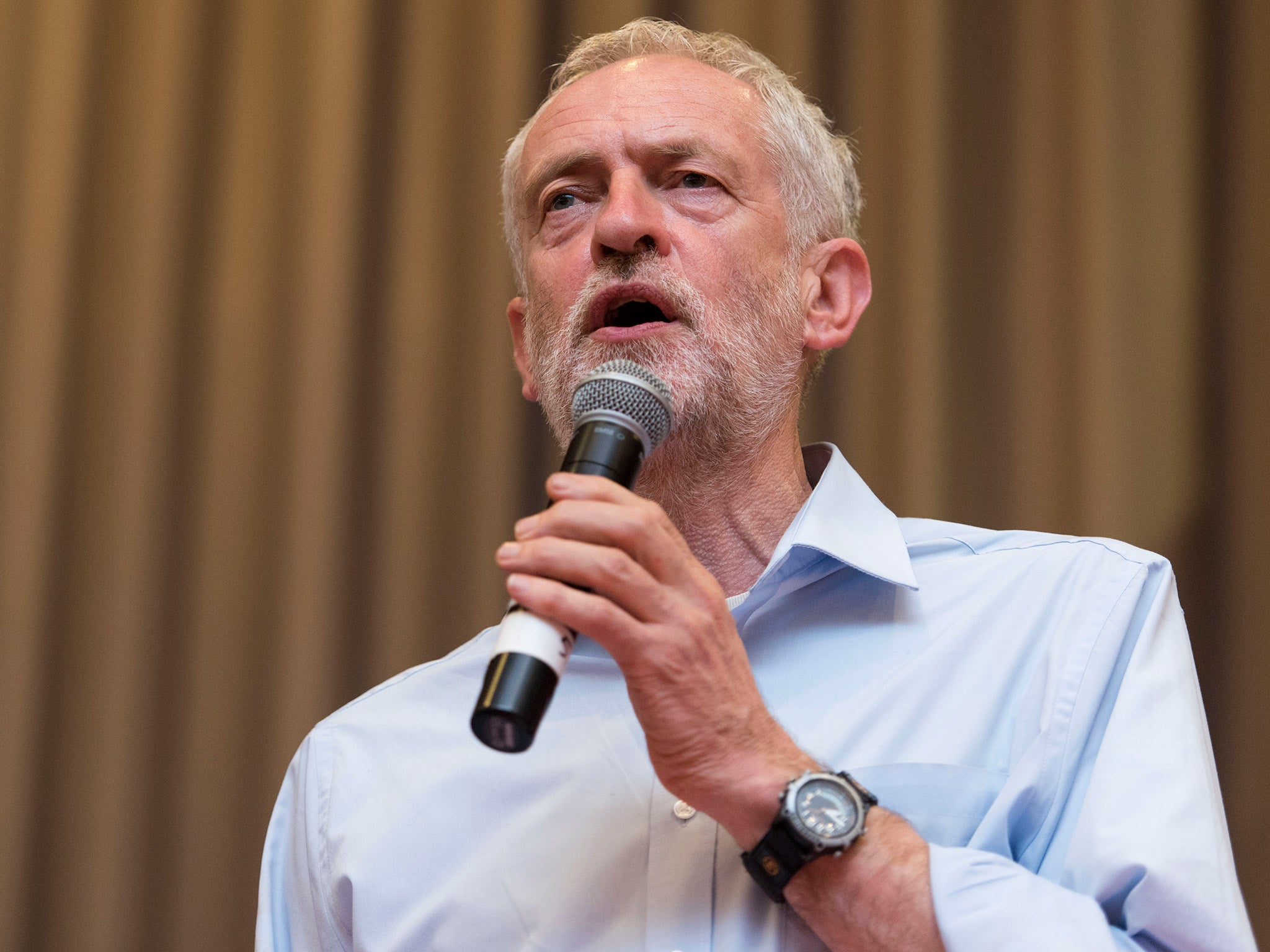Good politicians offer us hope. That's why we're drawn to Jeremy Corbyn
We want to believe, and at the moment Corbyn is giving people something to believe in. Maybe that's good enough


I’m at the Edinburgh Fringe performing two solo shows a day – an act of financial and artistic masochism that could leave me homeless come September. However, I do have one thing on my side. After years of writing about my niche obsessions – dandyism, Essex lions, my own fragile ego – I’ve somehow wound up topical. My one-man play What I Learned From Johnny Bevan focuses, among other things, on the Labour party, and on the politics of hope.
The play features two main characters: Nick Burton, a wet-behind-the-ears middle-class kid and Johnny Bevan, a whip-smart mercurial ranting poet from an east London council estate. At university in the late 1990s, Johnny guides Nick’s cultural and political awakening. Together they watch Tony Blair sweep to power. Both are indued with a sense of hope.
Johnny has grown up in Tory Britain in poverty, he watched his mother cry when Major got back in ’92. In ’97 he ignores his misgivings about Blair in favour of that sense of hope: “Sure, Blair’s smarmy / But he’s a clever bloke they’re playing it safe. / They’ll get in and then they’ll shift things to the left.”
Of course, Johnny at just 19 is naive; many on the left were already sceptical at that time. However, the sense of hope offered by Labour’s huge lead in the polls after 18 years of Tory rule meant most were happy to convince themselves that Tony was, in fact, the man they wanted him to be.
Many of us fail to engage with politics as closely as we ought. Life gets in the way. Johnny's twenties are filled with “a hundred rallies, demos, marches protests: / Gleneagles, May Day, IMF, Iraq… / Gaza, Lebanon, Afghanistan.” Nick, on the other hand, lives “the London life: a layer-cake of gigs and sex and art house cinemas, never more than fifteen feet away from a DJ.” He consumes his politics along with everything else that grabs the media’s attention.
Nick’s trajectory is the more typical. He hasn’t stopped caring, but politics has to fight for his attention along with everything else. Politicians know this of course, which is why they throw out a bunch of eye-catching ideas and slogans in the hope that one or two will stick. And which ones stick? The ones that give us hope.
Hope – along with trust – has got to be most valuable commodity for any politician to possess. In 1997 Blair was able to offer both. At 7am on 2 May 1997, my character Johnny slurs to Nick: “This is it, this country’s gonna change… They’re bound to build much better council houses! / What’s that word they use? They’ll… gentrify us.” The marginalised hoped Blair and Labour would build a fairer society; the middle classes trusted it was no longer the party of Tony Benn and Michael Foot. The Blairites would argue they succeeded in this; others would vehemently disagree. Somewhere along the line the hope and trust evaporated, and Labour lost power.
Johnny would certainly be a Corbyn supporter. But Nick might well be too. Some of Corbyn’s supporters have said that he excites them in the same way Blair did. That may feel surreal, but what he shares with the Blair of 1997 is the sense of ushering in something different, and with that, hope.
Think about how you felt when Obama was elected US President in 2008. Remember listening to that poem at his inauguration ceremony. Even Cameron offered hope that he might be a new kind of Tory. Hug a husky! Hug a hoodie! And then there was Cleggmania…
So what happens to that hope? Has Obama ever done anything that felt as good as his words at inauguration? Cameron’s austerity Britain cut the “green crap” – along with housing benefits for the under-25s.
Can a politician ever live up to the hope they create while campaigning? Governments are better anticipated or remembered than experienced. My play ends on a positive note as Nick remembers what is was that galvanised him as a student. He feels “that thump of love and hope back in his heart”. And it is this that sustains us.
There will always another politician offering a new brand of hope. We want to believe, and at the moment Corbyn is giving people something to believe in. In that, at least, Corbyn is nothing new at all.
Join our commenting forum
Join thought-provoking conversations, follow other Independent readers and see their replies
Comments
Bookmark popover
Removed from bookmarks